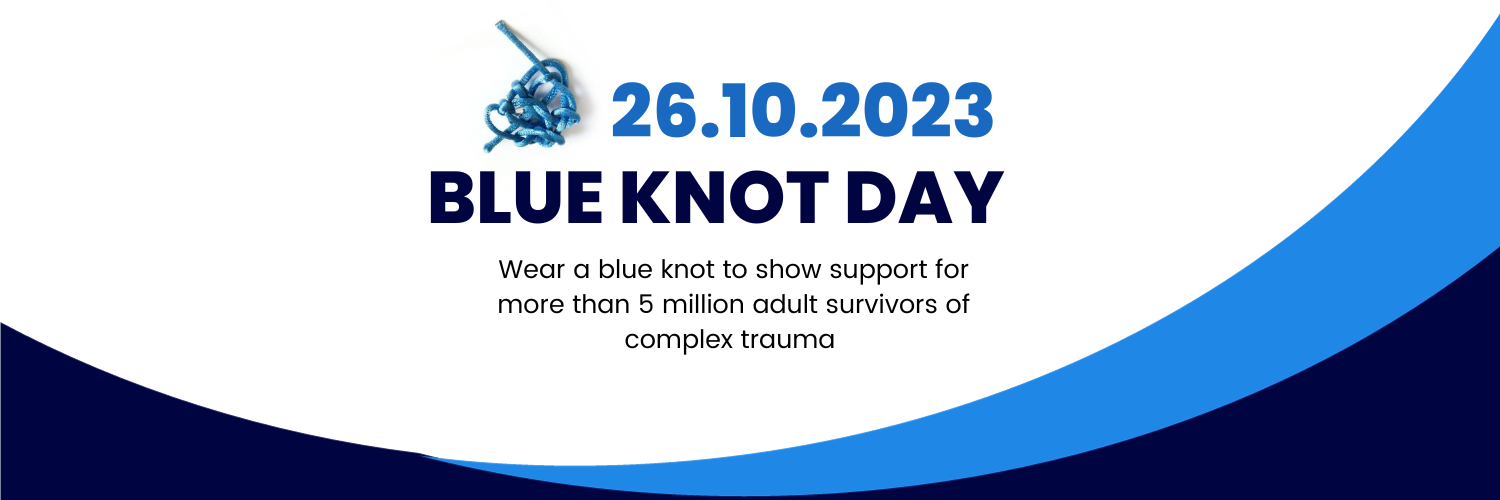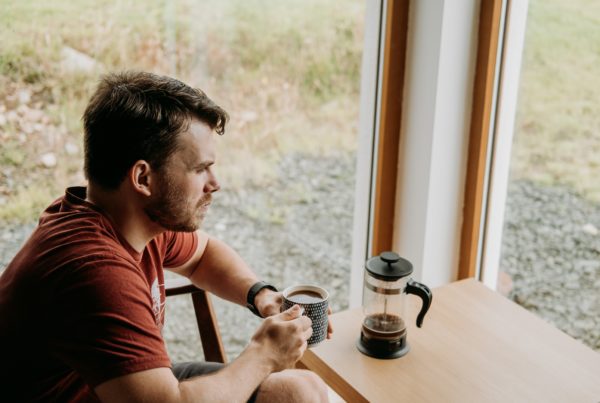Join us on 26th October for Blue Knot Day, an Australian National Day on which Blue Knot Foundation calls on all Australians to unite in support of the more than 5 million Australian adults who have experienced complex trauma.
Complex trauma refers to repeated ongoing interpersonal trauma and can include abuse, neglect, violence and/or exploitation. It can be experienced during childhood, but also in adulthood, or throughout a person’s lifespan.
Complex trauma, especially from childhood often has multiple impacts including low self-esteem, difficulties with relationships, completing an education, holding down a job, and challenges with mental and physical health. With so many adult Australians impacted, chances are either you or someone you know has been directly affected and have been left trying to manage the ongoing impacts of their trauma on a daily basis. When communities are more trauma-informed and show their support, survivors receive greater understanding and compassion to support their recovery.
How You Can Get Involved and Show Your Support
This Blue Knot Day we are asking you to show your support by wearing a Blue Knot to help raise awareness, and show you are part of our trauma-informed community. Here’s how you can get involved:
- Wear a blue knot and show you are part of our trauma-informed community.
- Get creative and make your own blue knot to wear.
- You can also purchase a blue knot pin or blue knot bracelet from the online Blue Knot shop. All proceeds help Blue Knot in its work in supporting survivors of complex trauma.
- Hold an event, help raise funds, and share Blue Knot Day resources to help educate the community about being trauma-informed, and build our trauma-informed community.
- Make a donation to help us support more adult survivors of complex trauma
- Share our pre-prepared social tiles which can be downloaded
- And most importantly, show your support, share images of you wearing your blue knot across social media using our hashtags: #BlueKnotDay #BlueKnotFoundation to help spread the message as far as possible.
- Follow our social media channels by clicking the links below:
- Go to our Blue Knot Day webpage to view all of the resources that you can share.
- We also invite you to register and join our webinar: Understanding Complex Trauma and Strategies to Support Yourself. Details are shown below.








